AVREY OVARD ON A LIFE LIVED ONLINE
Photographer & Producer / Oceane Auclair
Model / Avrey Ovard
Story / Orly Estrin
Makeup artist / Ghost
Hair stylist / Lovette Candice
Nail artist / Sarah Mésidor
Light assistant / Raphaele Sohier
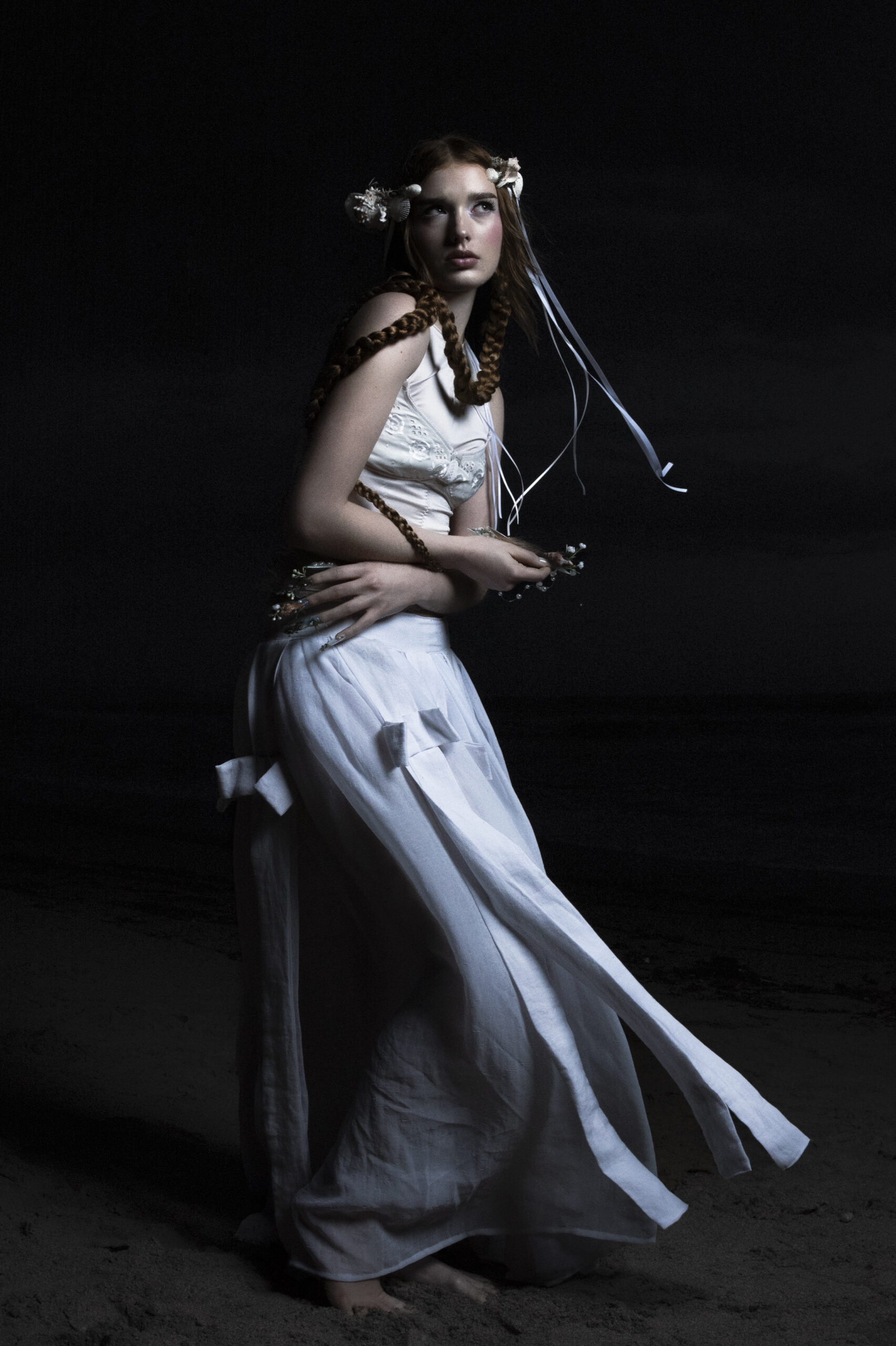
I first laid eyes on Avrey Ovard’s pixelated face on my computer screen sometime in 2015, probably viewed from my high school era white plastic MacBook. Then, my natural first impression was to think “Damn, this girl is really cool.”
Today, getting to know her on an interpersonal level for this interview, with photos shot by my dear friend Oceane Auclair, I am immediately struck by just how kind she is. (Though the original sentiment still stands, if not more so now. She is really, really cool).
Avrey possesses a very specific kind of social awareness, the kind that reveals itself to have been acquired via growing up in close quarters to siblings. Early in the evening, I send her a video of myself speaking to my phone camera, detailing how I had been nearly locked out of my apartment on my way to conduct this interview. She immediately reassures me and compliments my hair, and the sentiment is so genuine. As is somewhat natural for her career path, she has the ability to convey warmth even through text. I am instantly at ease talking to her. And, it is for this exact reason that in writing this interview, I was faced with a transcript of conversation that comprised nearly two and a half hours of wholeheartedly enjoyed and fulfilling conversation.
When profiling someone like Avrey, I am presented with a challenge. How in the world was I to edit down from that transcript, when it felt as though every sentiment shared held such weighted context and precontext? Call it a consequence of how thoughtful she is, a product of a long tenure on the internet and a subtle yet rumbling powerful moral compass. It cannot be understated: Avrey is clearly an extremely intelligent woman. That much I gleaned very quickly, even in my first moments getting to know her.
In the end, I decided my only option was to preserve as much of our conversation as humanly possible. And so, I present to you: Avrey Ovard On a Life Lived Online.
Avrey sits in her home in Los Angeles, a three hour time difference behind my writer’s station in Montreal. She and I had planned to conduct this interview two days prior, but as Murphy and his Law tend to dictate, Avrey had contracted laryngitis, and we decided to postpone. I secretly applauded this turn of events, as I had been stricken with a nasty flu on that very day. Sitting down now in front of my glowing computer screen, brain fog still very much at play, it is strongly felt that we’re both in good company.
I press the tiny microphone within Instagram’s chat interface, and get set to record my first voice memo. This is the method in which we’ve chosen to conduct this interview, in service to Avrey and her stricken vocal chords having as many chances as possible to take breaks and stew on answers before speaking. It is nontraditional, but a choice that ultimately ended up having a strange intimacy to it–some quality of the internet age that feels like the modern equivalent to fidgeting with the rotary phone dial.
“Let’s do this! Avrey, how are you??” I say. “Physically, we’re rockin’ laryngitis. But mentally, where have you been at since the new year? Not to jump in the deep end too immediately, but I have to wonder if as someone who “story-ifies” their life in vlog format, if this chapter of life feels like a chapter in a literal sense.”
“Thanks for asking! Yep, entering ASMR mode,” she laughs, referencing the whisper tone she’s had to take on in order to be audibly comprehensible through an otherwise slightly croaky voice.
I can’t help but note that when the word ASMR leaves her lips, it’s started with an inflection that could only be harnessed by someone who is Very Online. Avrey is someone who is in every way informed by the internet, and I love it.
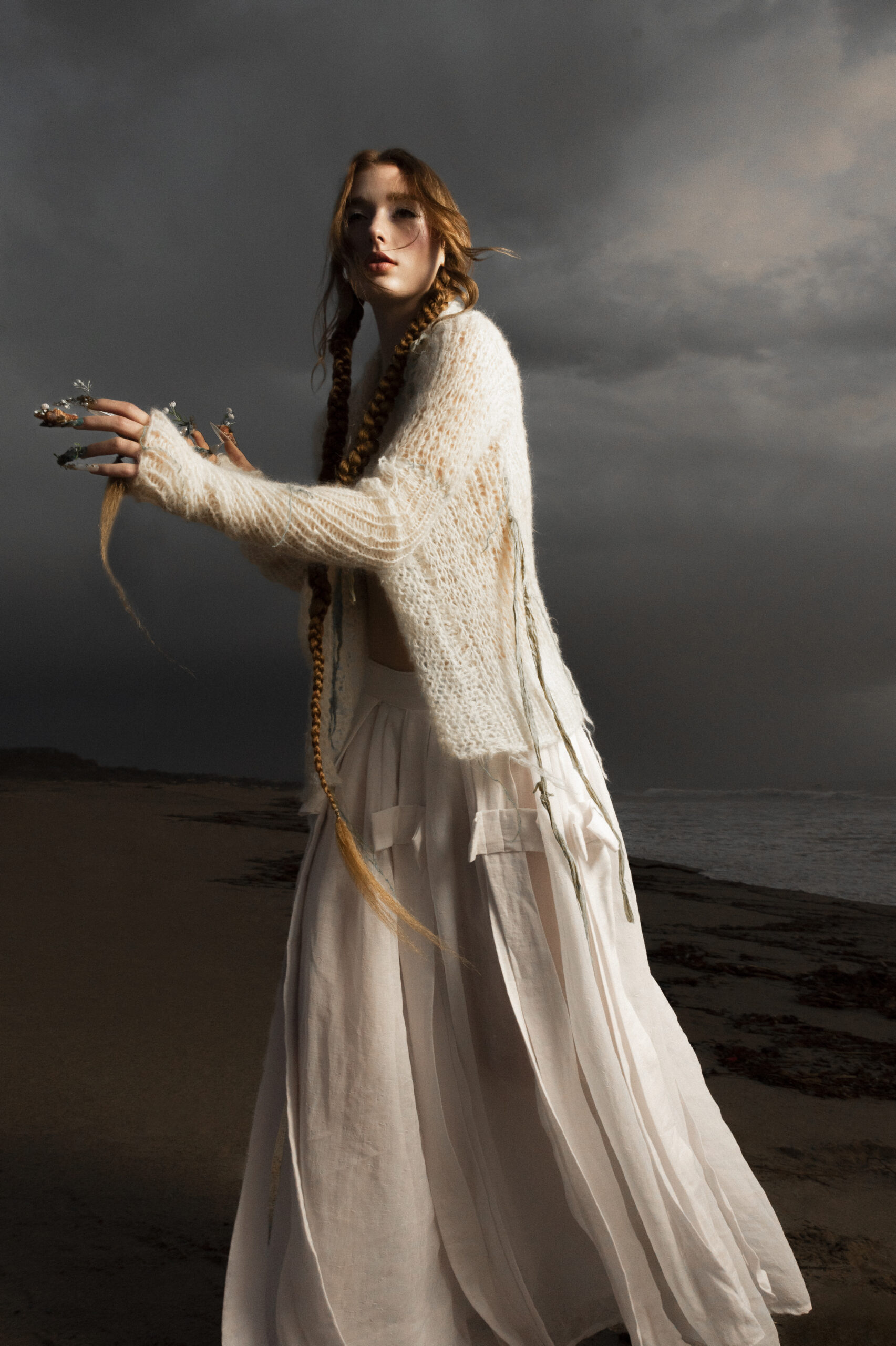
“I mean physically, obviously I couldn’t be worse! But mentally I’ve been doing pretty well. I’m gonna be celebrating my two year anniversary of living in LA next month, which is fucking crazy to think about. I feel like in the last six months I’ve found my groove in terms of finding my people and the places I enjoy going. It’s been so helpful.
I think the biggest thing that I am and always have struggled with day to day, is feeling like I constantly have to be filming everything I’m doing, and showcasing my life. Literally, all the time. I’ve been doing this for so long that transitioning into adulthood has been a game of trying to find a balance between what I do and don’t feel comfortable posting”
To say Avrey has been online for a long time almost feels like an understatement. First debuting on YouTube on her sister Aspyn’s channel at age 12, and a year or so later starting a channel under her own name, she stepped into a spotlight that came part-and-parcel with a meteoric level of public awareness. Aspyn would, retrospectively, be considered by many to fall into the camp of “OG Beauty YouTube”, even predating the never before seen viewership boom that the platform saw in the mid-2010s. For Avrey, aided by her personal interest in art and film, the transition to public creatorship was fated.
When asked how her relationship to her platform has changed over the years, Avrey responds “After almost 10 years doing content creation, I really do think privacy is the thing I’ve come to value the most, in every respect.”
I tell her I can’t imagine the strain one might feel between the temptation to share everything, when sharing is incentivized financially, and the knowledge that privacy is often in one’s best interests.
“It’s so true! It’s so exhausting. It’s not healthy mentally at all,” she replies with a sigh. “Mental health is a huge conversation nowadays – so much hard work goes into building a strong relationship with yourself to where it’s easier to withstand being in the public eye. For myself, something I’ve had to take a step back and assess is what I think is going to truly make me happy when it comes to my job. And even saying that, I’m so unbelievably lucky that I’m in a position where I’m even able to ask myself those kinds of questions! That’s the beauty of what I do–there is that flexibility. But then on the other side of it, coming online and sharing my deepest darkest secrets in front of a camera every day just to ensure I’d get enough views to sustain was hurting me too. It didn’t work for me; it wasn’t healthy. I’ve seen so many other people do it and it works so well for some people, sincerely! But I know for myself it just didn’t.”
In her decade online, Avrey has watched the boundaries between creators and viewers morph and change shape in this hybrid entertainment medium that is still technically in its infancy. We chat about comments sections, and the rise of negging as the trending mode of interpersonal communication online. Avrey remembers a world where YouTube comments sections felt like a community, not only in name but by nature. “The culture of how audiences related to the creators was so different! Nowadays, everyone in the comments wants to be funny. Back then people were happy just being a viewer, but it’s going in a direction where it’s all about being a troll and getting the most likes in the comments section” she shares. “I watched my favorite YouTubers comment sections go from being so kind and positive and reassuring… to the polar opposite. It’s so depressing.”
The conversation drifts to Avrey’s tenure as a public figure, and what is asked of her to stay exciting for viewers who have grown to love her avatar and the artifice this requires. We chat about the maladaptive skillset of monetizing your personality in order to make marketable content, and the arrested development this phenomenon causes in a still-developing brain.
I venture the following idea: “When I think about being so heavily subjected to public opinion, it reminds me of the Margaret Atwood quote, “You are your own voyeur”. Not to bastardize her words at all here, but it almost feels like there’s an additional voyeur for someone in your position – the critic, or the audience member. As women overall we are women watching a man watch us, but as a career content creator you are yourself, watching an audience member watch you.”
“Definitely. Definitely! If I can be completely honest with you, having this realization about myself was the reason I first started going to therapy at 16 or 17. I truly felt like I could not think for myself. It scared me! I had so many voices that weren’t mine hardwired into my head, that belonged to people that I knew I didn’t really owe anything to, but they were so attached to me. I couldn’t tell if I liked what I was wearing, if I sincerely liked a certain trend or not… I was subjecting myself to so much scrutiny, and it wasn’t even mine! To this day, it’ll still show up in the silliest ways too… I’ll put on an outfit, and stand in the mirror making up TikTok comments that don’t exist yet in my head! I had front loaded so many years worth of examples of what people might say that my brain will start generating its own.
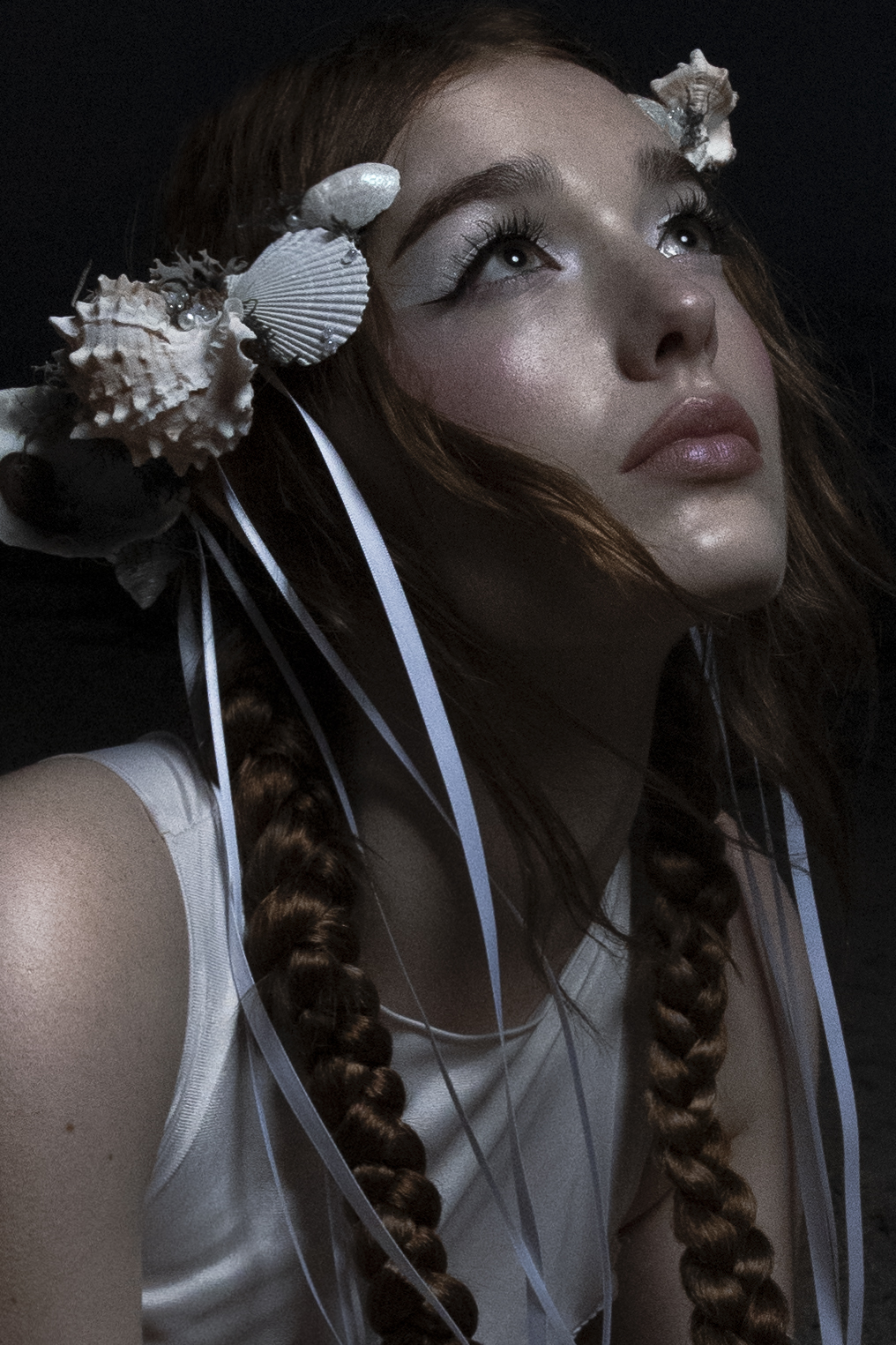
“In adulthood, I’ve learned to put the emphasis on trusting myself. I’ve always been someone who’s struggled with anxiety, ever since I was a child. I feel like almost everyone carries anxiety in some way or another, but I know for me it’s something that’s always been pretty debilitating. Therapy has done so much for me! It’s been all about self-trust exercises to learn how to parse what is and isn’t me in my internal dialogue. It’s been a completely new thing for me to be able to look in the mirror and look at that girl and say “we can get through this, just me and you!”
“This new chapter, in a way, has been about learning to believe that I’m good at my job because I’m me, not in spite of it! I’m good at my job because I’m a driven and naturally creative person. It is a battle every day to look past the haze of external and internal doubt and fall on trusting myself. It’s still hard but I’m making an effort to show up for myself every day.“
I ask, “As part of your personal reconnection with boundaries, how has that played into your relationship to creativity? Something that I think is sometimes lost on audiences, in a world where the word “content” is thrown around so much it’s lost its meaning, is how much content creation is a complex creative effort.”
“I’m always creating and ideating in my head,” she replies, “even if it’s not about anything I’d ever wanna post! It’s a thousand things swirling around, be that a script I’m writing or a photoshoot I’m mentally planning. I get scared to share the things that my audience hasn’t seen from me before though. The idea that I could put my heart and soul into something and have it perform badly… There’s nothing that hurts quite like that for me. And it’s absolutely an ego thing! It’s something I’m working on separating for myself.
“In a way, I feel like the question for me isn’t so much how my relationship to creativity has changed, but rather how my relationship to social media itself has changed. I’m proud to say that even in some of my most difficult times where I temporarily stop posting, I’m still able to appreciate my own… creative eye? I don’t know if that’s cheesy to say, but I don’t care! I do think my creative perspective is unique in a lot of ways, and my favorite people to follow are the people who I feel like also have a unique perspective. It’s so inspiring and it keeps me focused on creating the content I wanna see in the world.”
After a second’s pause, another voice memo rolls in, and I can hear the smile in her voice: “My grandma is actually my biggest source of inspiration as a creative person! She’s an artist and a quilter and fiber artist and makes the most insane pieces, and while she does share it, it’s in such a different way than the way I share my work. Having such a healthy example of her relationship to her creative output is so grounding for me. It helps me re-centre and assess if I’m creating for other people, or creating the things I want to see in the world. She helped me with my first sewing projects ever – I’m eternally grateful to her. Also, she was the ultimate cool girl. Growing up in rural Utah as a hippie teenager? Hello? She was and is the coolest.”
I tell Avrey that our conversation is making me think of the seminal self-help workbook “The Artist’s Way,” one of the most beloved (both for myself and to the world at large) works on creativity of all time. Within seconds, Avrey has sent a photo to our shared chat. I click to open it, and her outstretched arm is pictured holding her own clearly well-loved copy, pages dog-eared and Post-it-notes sticking charmingly out of the sides. I send back a photo of myself holding up a finger-heart and caption it “the Artist’s Way is That Girl”.
I decide to share with Avrey that on my first night of research for this interview, three-quarters of the way through a bag of kettle corn, I found myself needing to journal about her. While so few of us can say we’ve lived the things Avrey has, I was gripped by the way that so much of the core motivation behind the worst scrutiny she experienced, is one branch on the tree of criticism against young women that unites us all in our pain. In what is either an act of total self-indulgence or a good-faith exchange of creative musings (or, likely both), I send her the following excerpt from the journal entry:
“Avrey harnesses a power in her ability to share her most off-cuff thoughts and feelings and opinions online, in a world that pathologies everything that a girl is. “You think wrong, you look wrong, you fiddle too much, you exist wrong. You care about the wrong things! Be authentic, but don’t be too authentic because then you might reveal yourself to be fundamentally Bad. Do good, but don’t be doing better than the audience otherwise you’re pretentious! Be beautiful, but don’t know it otherwise we’ll feel weird about putting you on a pedestal!” To see other young women existing as we do in our own heads, in our Mind Palaces, in the same era as us, is the normalization of the experience of being a young woman.”
Avrey ponders carefully before responding. “Oh my god…” she trails off. “I’m almost at a loss for words. That’s exactly it! No matter what we’re doing, we’re doing it wrong!”
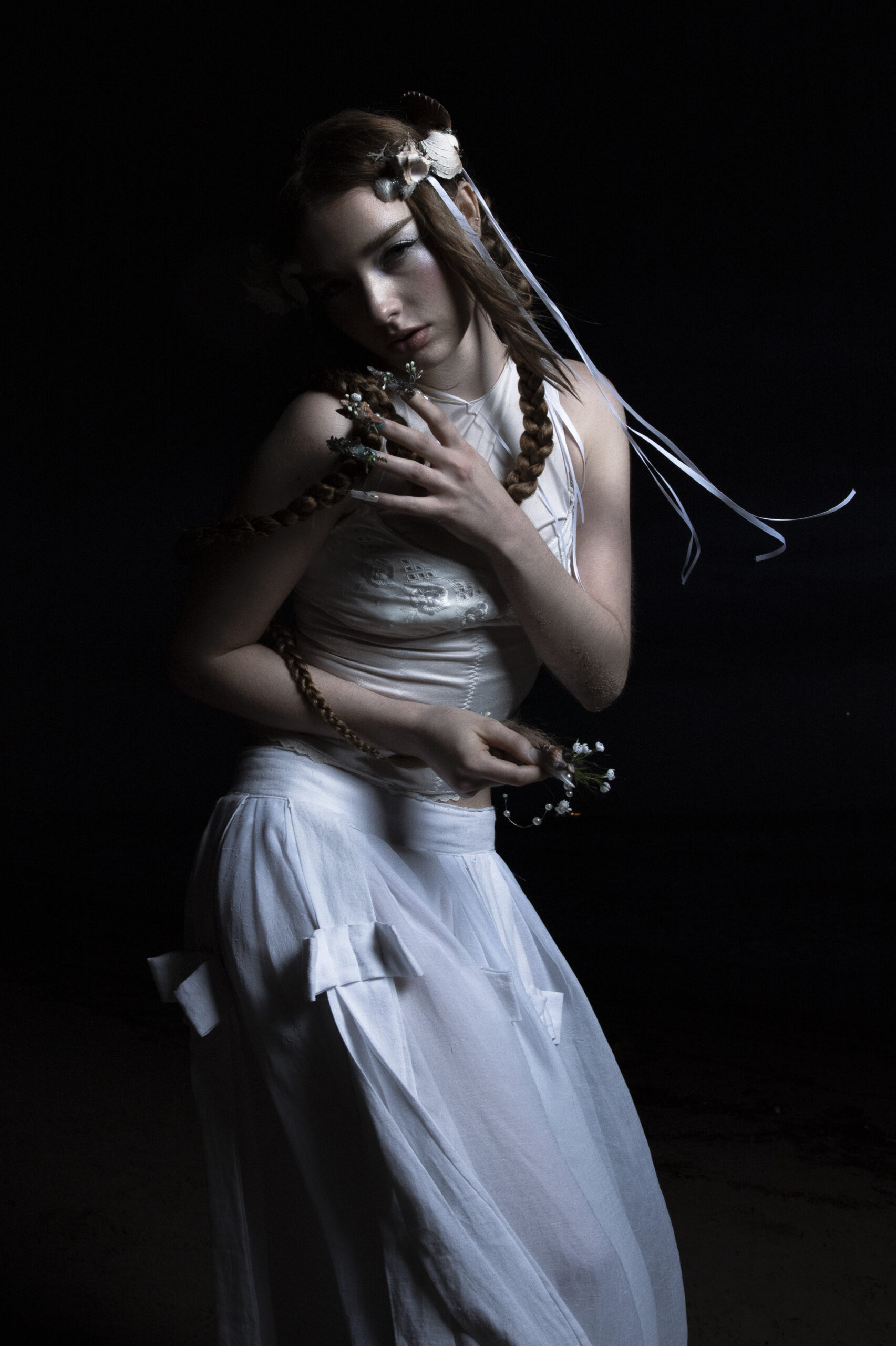
She sends another follow-up message a minute or two later, expanding further.
“Something I struggle with is feeling like whatever I’m doing, there’s a more efficient or more “correct” way I could be doing it. It’s constant! One of my favorite quotes is, “There’s more than one way to build a house.” I heard that for the first time from my mom and it’s such a necessary reminder for me. Even if it’s just the way I, for example, am organizing my drawers. If I know I’ll probably go online eventually, I’ll be so afraid that I’ll be revealed for being bad at everything, as if I’m playing the game of life wrong. Even in areas where there’s no one right way to do it! It really all connects back to that critical inner voice.”
I peer down at my notes and send another message: “In my research, I inevitably ended up reading about how you grew up in Utah. I’m so curious to ask, do you feel like your proximity to Mormon culture, the culture of “keep sweet” and “Shiny Happy People” and the way being ultra-polished is the standard for women… Do you think that might’ve had any influence on the environment that led you into content creation, something that inherently asks you to create an artifice of yourself? Maybe this is just a personal fascination, as someone who grew up in an orthodox religious denomination and consumes a lot of content about Mormonism because I can relate to some of it. I am admittedly way too curious not to ask, I hope you don’t mind! Was there that influence, whether you personally were Mormon or not?”
Avrey responds quickly, and it’s clear from the speed in which she replies that this is a topic she’s sat with a great deal. “Oh, you’re right! I did grow up in Utah. I never know what to say when I’m asked if I was Mormon or not. I went to church until I was four or five and then my family stopped going completely. However… a lot of my family is Mormon. Everyone, and I really mean everyone around me was Mormon. My family was the only non-Mormon family in a 20 mile radius! No doubt we were the black sheeps of my hometown.”
She ponders for another moment and responds “I don’t think it was so much that I wished I was like them to conform… kind of the opposite actually. I felt so different from everyone else and I had such a different life from them. Everyone had their cookie cutter Mormon family, and meanwhile my parents were getting a divorce! Even me and my siblings.. We had a completely different dynamic from a typical Mormon family. I think the divide between myself and others really punctuated the growth of my individuality, and that was ultimately a good thing! The only way to “fit in” would’ve been to compromise my belief system and that’s definitely not something I would have ever done, to say the least.”
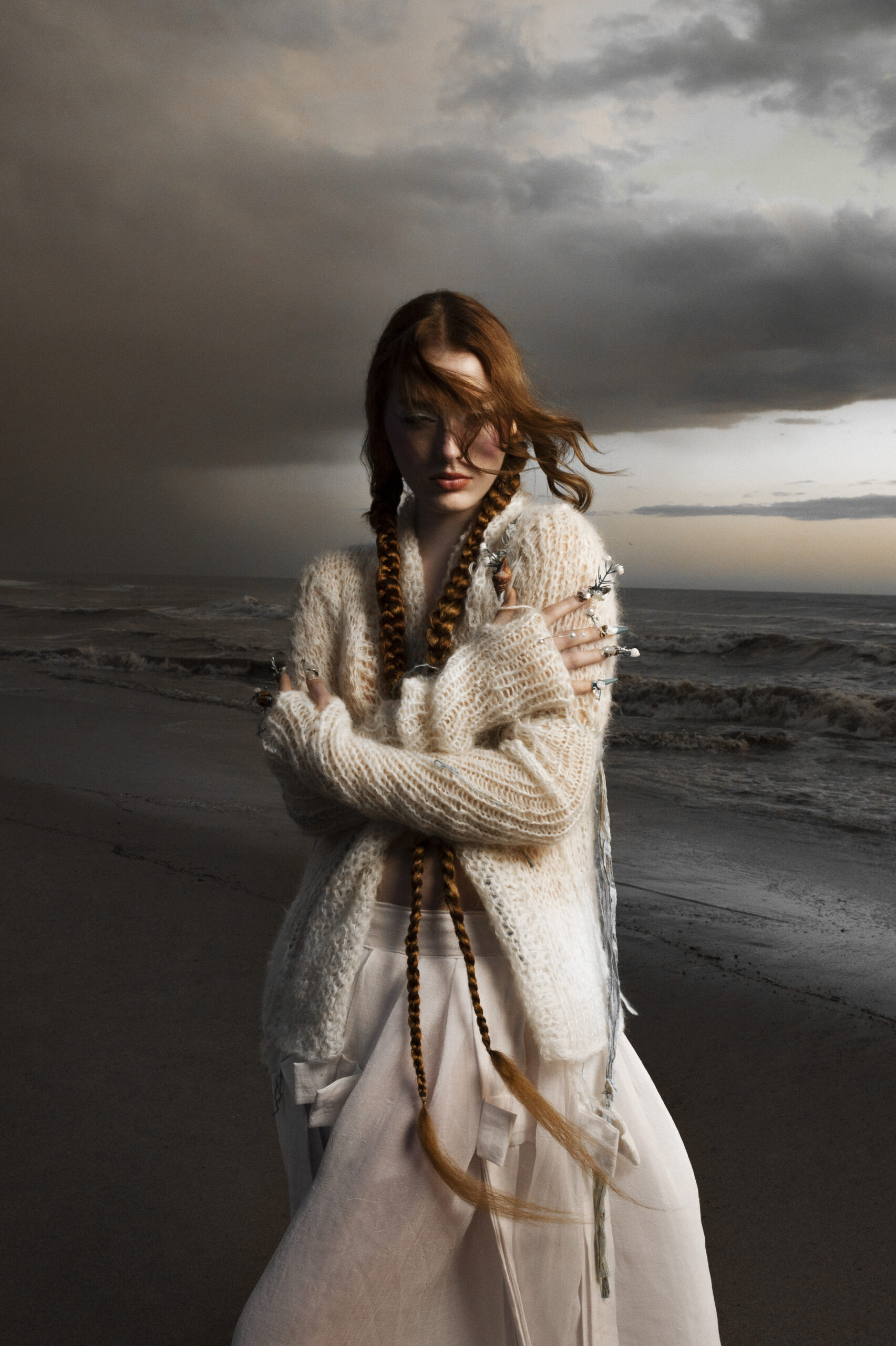
In this moment, I wish so badly we were in person for the interview, and I tell her how much I can relate to the sentiment. While our child selves may not have been in the exact same circumstances, I laugh and tell her I think we would’ve understood each other.
“I love that you watched that documentary [Shiny Happy People] too!” She continues “[Proximity to Mormonism is] still a huge theme in my life and my personal history. It’s funny, whenever I’m going out or talking to somebody new, the first question they always ask is if I’m Mormon, and the answer is no… But it feels like I could tell you just about anything about the Mormon church because I was around it my whole life!
“Even just being in Utah, the influence of the Mormon culture still affected people in my family! My sister got married when she was a teenager, and my grandma also got married when she was a teenager! And there was nothing wrong about that for either of them, it just wasn’t ever something that felt like it was right for me.”
Almost two hours into the interview, Avrey and I bounce back and forth from topic to topic, and I am lit up by her sincerity. We circle back on her early start to YouTube fame, and I ask, “Something so important that I think we’re seeing in the cultural onus lately is a long overdue conversation about the ethics of children being public figures online. I’ve been dying to ask you, do you feel any resonance between your own experience and the conversation around these kids? Do you relate?”
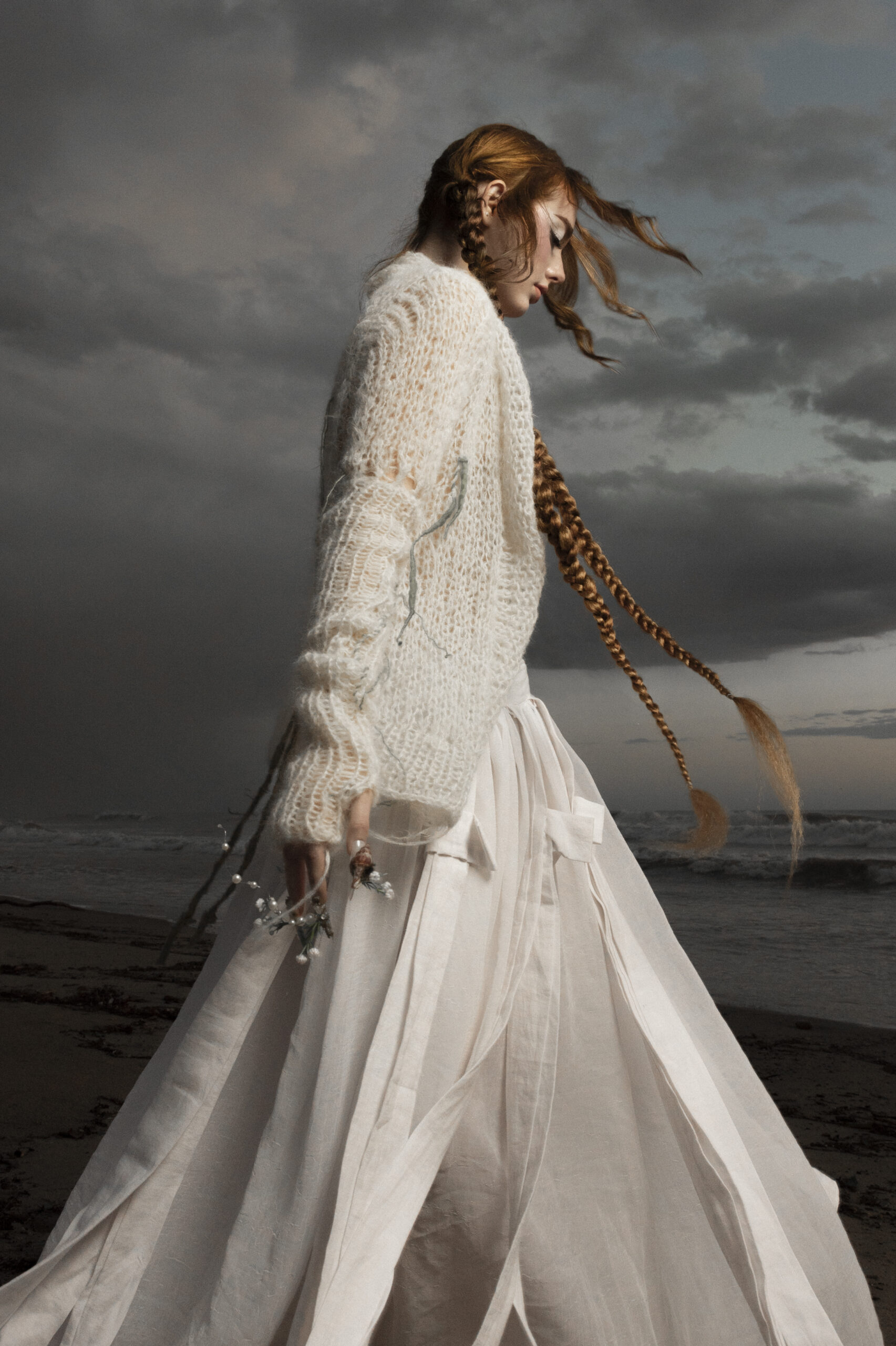
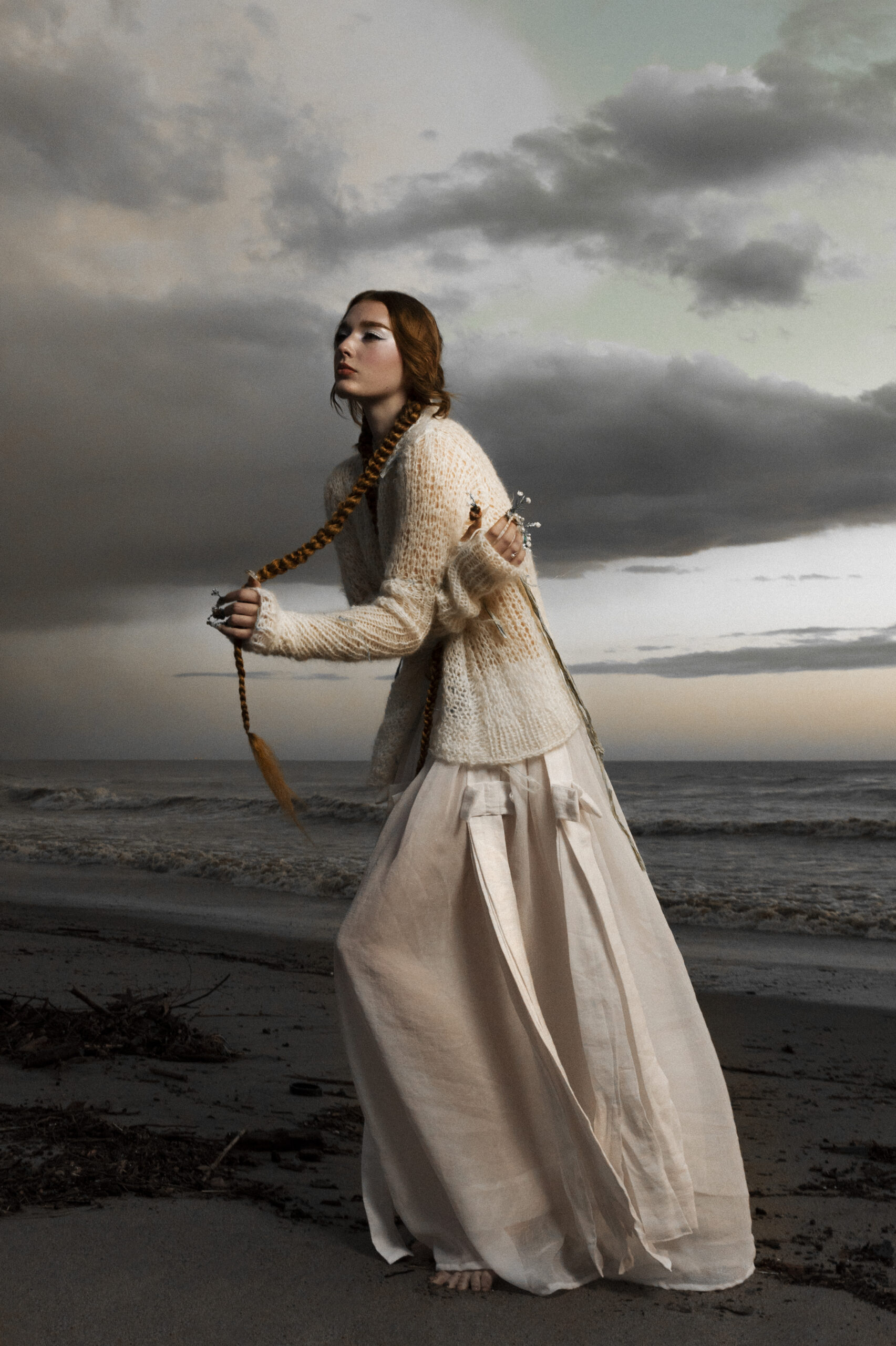
“This is something I think about literally all of the time,” she responds, and I can feel just how much she means it. “I feel extremely fortunate because I have a really great mom and I always had an amazing support system growing up that wanted to protect me. I even had a manager from a very young age who also did a lot to protect me! But I also think the climate is especially crazy for kids nowadays. Not that my situation bore any similarities to this – totally different situation – but Quiet on Set, the documentary that just came out about the abuse going on at Nickelodeon! There are so many dangerous situations that kids are subjected to in entertainment every day. Children are exploited for content. It’s so scary to watch it play out in real time on platforms like Tiktok. But also, just everywhere! It feels inescapable lately. The Ruby Franke case recently and even family vloggers in general… Seeing innocent children getting trolled in their comments… It breaks my heart.
“I think, because I grew up on the internet… I’ve always been someone who’s hyper-aware of what happens when you aren’t mindful about your words as a public figure. I’ve always been really cautious about what I did and didn’t share, because it all has an impact. Not just on me, but on the audience. Good and bad. Overall I’m happy to say I don’t have any regrets. I think lately though, I’m seeing more and more kids have unfiltered exposure to the internet, and it makes me nervous! Whether it’s the kids sharing really sensitive aspects of their personal lives, or the parents oversharing on behalf of the kids… I constantly think about what we, or I, can do as someone who’s been creating as long as I have. My story isn’t everyone’s, but I’ve been in some of their shoes, and I hope I can use my experience to one day lift them up and help protect them from their circumstances and from predators. That might sound dramatic, but it’s the unfortunate reality that its at a point where it’ll call for extremes to make change, and this topic really matters to me”
“Not only is it not dramatic,” I reply, “ I think you’re among the cohort of the most qualified, save from maybe a child development psychologist, to weigh in on this. People in your position who lived it, your voice and insight is so vital. Especially, I think, with the nature of the artifice of show business. It’s built in that the ugly gets tucked away and hidden from the audience. “Hollywood Magic,” as they say.”
Avrey replies “Thank you for saying that! I really hope so, it makes me feel good that one day I might be able to use my lived experiences to make a difference for kids.”
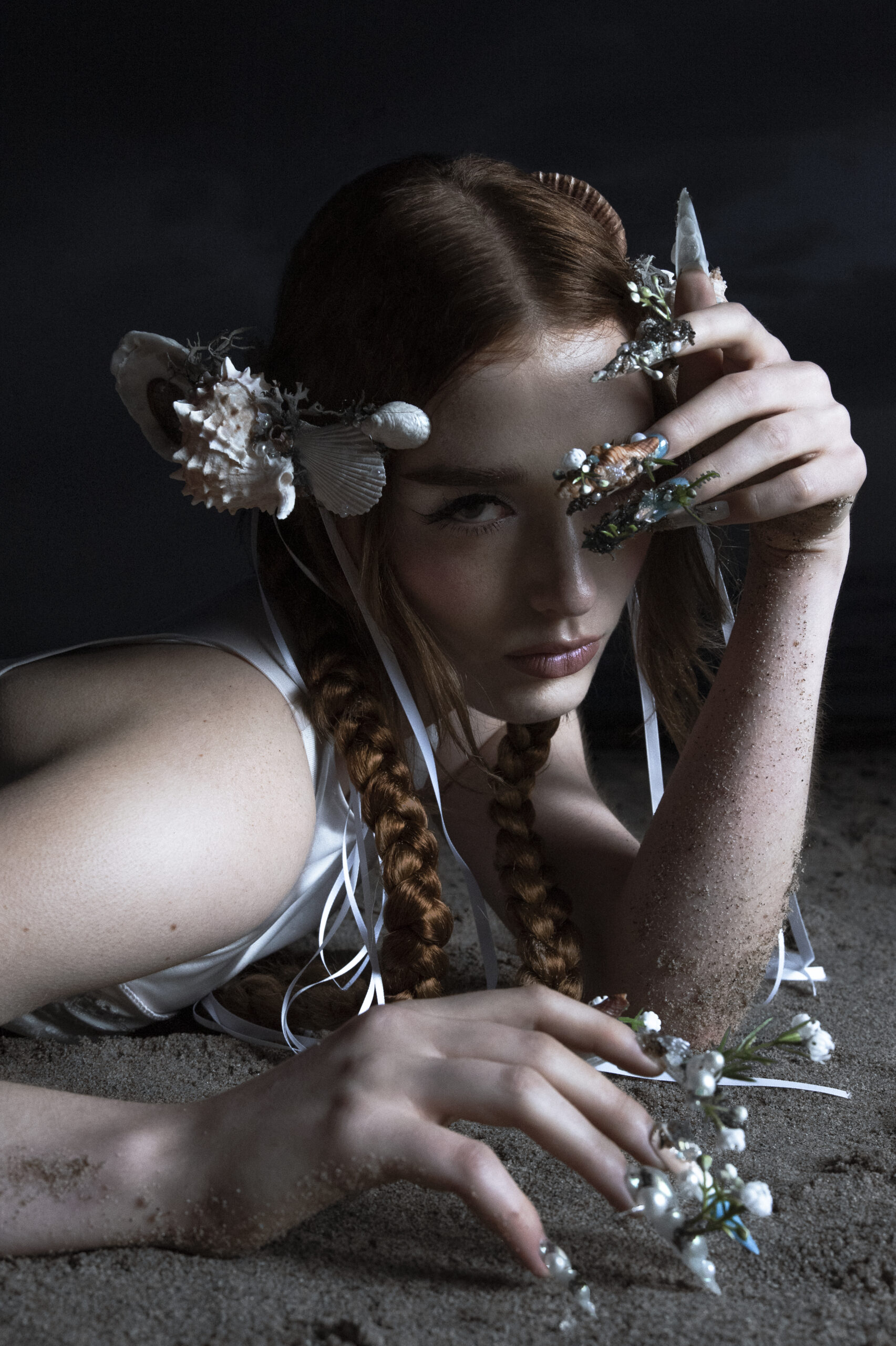
STYLING CREDITS
@avenirvert.shop, @my.sweeven, Custom headpiece, @orl.y
